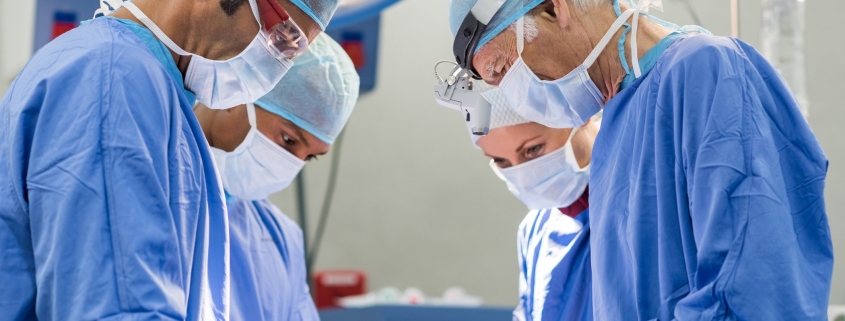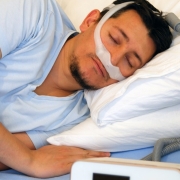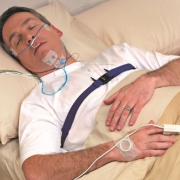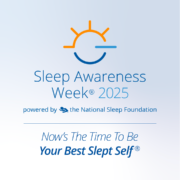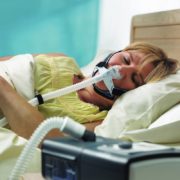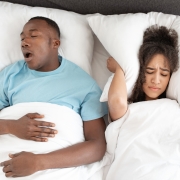Having Surgery? Why you need to be screened for Sleep Apnea.
Having Surgery?
Why you need to be screened for Sleep Apnea.
Sleep Apnea is a potentially serious sleep disorder that occurs when breathing is interrupted during sleep. People with untreated sleep apnea can stop breathing up to hundreds of times each night while sleeping. As many as 18 million Americans have obstructive sleep apnea. But over half of those experiencing obstructive sleep apnea (OSA) are unaware that they have the condition.
It is important for surgical patients to be pre-screened for sleep apnea. Patients with sleep apnea who are undergoing any type of surgery or invasive procedures under general anesthesia are at an increased risk for developing respiratory and cardiovascular complications. Complications can include irregular heart rhythms, oxygen deficiency, high blood pressure, diabetes, stroke, heart attack and even death. This holds true for both surgeries related to obstructive sleep apnea and unrelated surgery such as orthopedic or bariatric procedures.
SCREENING FOR SLEEP APNEA BEFORE SURGERY
Screening patients prior to surgery can be very simple. Patients fill out a short Patient Sleep Apnea Questionnaire, which helps their physician determine who is at high risk for sleep apnea. Based on your responses you may need to do a sleep study to confirm or rule out sleep apnea. This test can be done in a sleep laboratory or, in some cases, it can be done with an at-home kit.
PREPARING FOR SURGERY IF YOU HAVE SLEEP APNEA
If you test positive for sleep apnea you should receive treatment prior to scheduling any non-emergency surgery. The gold standard of treatment for OSA is Positive Airway Pressure (PAP). It is important to be compliant with your treatment (wearing the device for 6-8 hours a night) for two to four weeks before the surgery takes place.
DURING AND AFTER SURGERY
Those patients on PAP should bring their own equipment to the hospital. You will receive PAP once your surgery is completed and you are in the recovery area. You should continue to use the unit if admitted to the hospital. It is extremely important to remain compliant with use of PAP therapy after surgery in order to help decrease complications.
TALK TO YOUR DOCTOR
Whether or not you are having surgery, sleep apnea can be dangerous if not diagnosed and adequately treated. The most common symptoms of sleep apnea are:
- Snoring, chocking, or gasping during sleep
- Daytime sleepiness
- Morning headaches
- Trouble concentrating, memory problems
- Mood swings, depression
If you experience any of these symptoms you should speak to your doctor or call Comprehensive Sleep Care Center at 703-729-3420 to see one of our sleep medicine specialists.

